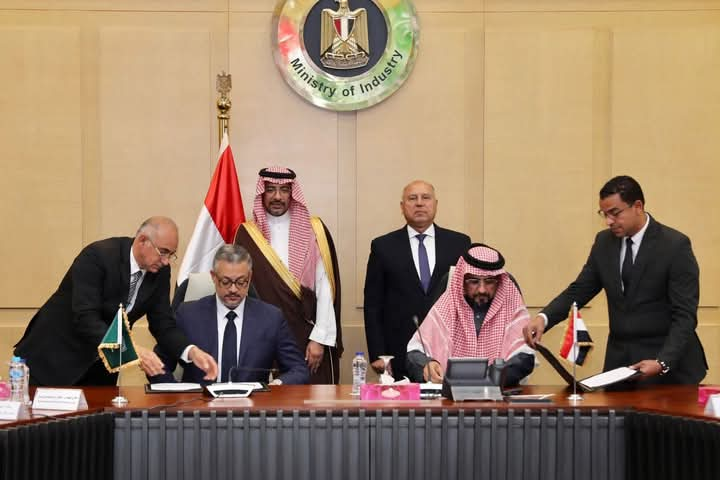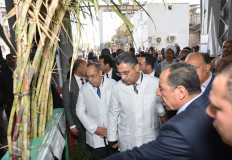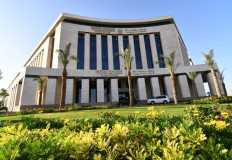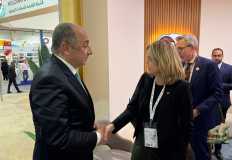
Engineer Kamel El-Wazir, Egypt's Deputy Prime Minister for Industrial Development and Minister of Industry and Transport, discussed with Bandar Ibrahim Al-Khuraif, Saudi Minister of Industry and Mineral Resources, and his accompanying delegation ways to enhance cooperation and industrial integration between Egypt and Saudi Arabia in the coming phase.
The Minister emphasized Egypt's eagerness to collaborate with all Arab nations in the industrial sector, recognizing its pivotal role in driving sustainable development. He highlighted the significance of establishing joint manufacturing facilities and logistics hubs with Saudi Arabia in both countries. This initiative aims to foster industrial integration and amplify trade volume between the two nations, particularly given their advantageous geographical locations and robust connectivity. The Minister underscored the critical role of transportation, encompassing maritime, rail, and land modes, in supporting the industrial sector by efficiently moving goods from production sites to seaports. He stressed the importance of establishing industrial zones strategically located near transportation routes to facilitate the movement of products, whether destined for the domestic market or for export through logistics hubs and seaports to international markets.
He outlined several key areas for
potential collaboration between the two nations, including the manufacture of
aluminium sectors in Egypt or Saudi Arabia to meet the large Egyptian market demand,
in addition to establishing joint factories with the Kingdom in strategic areas
including automotive components (tires, wires, chassis, brakes),
petrochemicals, and the manufacture of equipment for solar and wind energy
stations and green hydrogen, as well as the manufacture of polyester and its
derivatives in Egypt, in addition to the manufacture of active pharmaceutical
ingredients, especially for chronic and critical diseases, and the expansion of
Saudi food industries in the Egyptian market, to meet the needs of both the
Egyptian and Saudi markets and export to the outside.
He emphasized the availability of
industrial land, skilled labor, and essential industrial components to
facilitate these joint ventures.
To expedite this collaboration,
both parties agreed to conduct frequent meetings between the Industrial
Modernization Center of the Egyptian Ministry of Industry and the Saudi Export
Development Authority. These meetings will serve to track progress, address
specific issues, and develop a comprehensive roadmap for significant industrial
cooperation between Egypt and Saudi Arabia.
Al-Khuraif underscored the need
for enhanced cooperation between the two ministries to translate the strong
bilateral relationship into tangible projects that create new jobs and bolster
the economies of both nations. He noted that the working group comprising
representatives from both ministries will focus on specific areas discussed,
including supply chain integration, advanced manufacturing, and human capacity
development.
On the sidelines of the meeting,
Engineer Kamel El-Wazir and the Saudi Minister of Industry and Mineral
Resources witnessed the signing of a supply chain cooperation agreement. This
agreement was signed between the Egyptian Company for Iron and Galvanizing
Industries and the Saudi Falak for Business Company. The partnership aims to
collaborate on the manufacturing and supply of telecommunication towers within
the Kingdom of Saudi Arabia. Mahmoud Hareedy, Managing Director of the Egyptian
Company for Iron and Galvanizing Industries, and Mudhi Sayer Al-Tribani,
Managing Director of Falak for Business Company, signed the agreement on behalf
of their respective companies.
The contract aims to strengthen
collaboration between the two companies in specialized iron industries,
including galvanizing and the manufacturing of telecommunication towers in
Egypt.
Furthermore, the agreement allows for the expansion of cooperation to include other mutually agreed-upon areas. This may involve leveraging the Egyptian company's expertise in all industrial products by preparing and submitting technical proposals and showcasing their practical experience to participate in government and public tenders within the Kingdom of Saudi Arabia.





